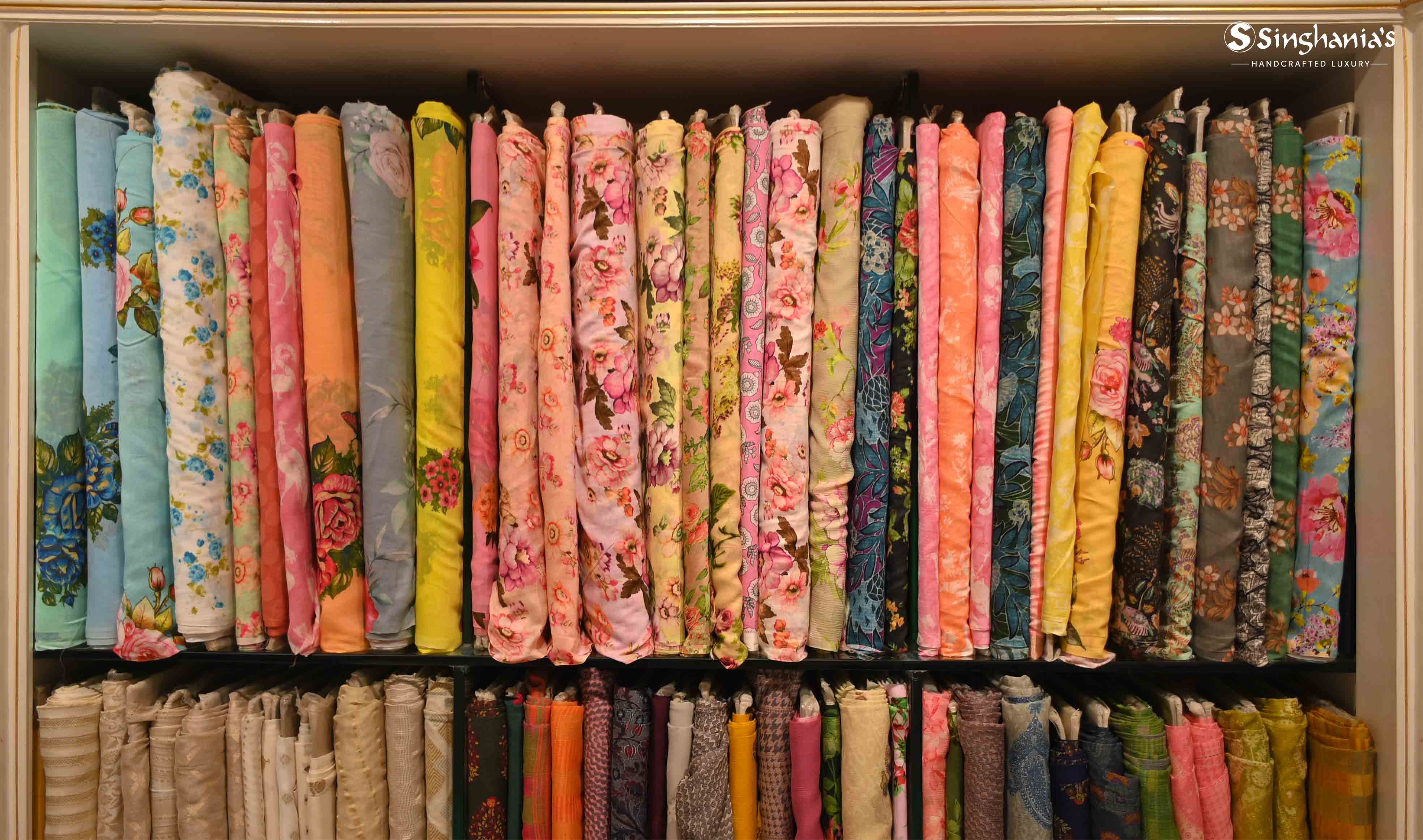
Start with Responsible Suppliers:
When sourcing for wholesale fabric online, look for suppliers in India who prioritise sustainability. Seek out those who offer organic or recycled materials, adhere to fair labour practices, and have a commitment to minimising their environmental impact. Ask them about their production processes, certifications, and sustainability initiatives.
Embrace Natural and Organic Fibres:
Opt for fabrics created from renewable resources such as organic cotton, hemp, bamboo, or linen. These materials are biodegradable and require fewer chemicals during production compared to synthetic fibres. By choosing natural and organic fibres, you can minimise the environmental impact of your fabric choices.
Explore Recycled and Upcycled Options:
Consider fabrics constructed from recycled materials, such as recycled polyester or reclaimed fibres. These fabrics reduce the demand for virgin resources and help divert waste from landfills. Upcycled fabrics can also be a fantastic choice, as they give new life to pre-existing materials, reducing the need for additional production.
Efficient Inventory Management:
Implement smart inventory management practices to minimise waste. Accurate forecasting, just-in-time production, and regular monitoring of stock levels can help reduce excess fabric and unnecessary production. By aligning your production with customer demand, you can minimise waste and ensure more sustainable use of resources.
Design with Waste Reduction in Mind:
Design garments that maximise fabric utilisation and minimise offcuts. Utilise pattern-making techniques like zero-waste or modular design to minimise textile waste during production. By strategically placing pattern pieces and minimising the number of seams, you can optimise fabric usage and minimise the amount of leftover material.
Collaboration and Education:
Foster partnerships with suppliers, manufacturers, and other industry stakeholders to share knowledge and promote sustainable practices. Encourage open conversations and continuous learning within the fashion community. By collaborating with others, you can exchange ideas, explore innovative solutions, and collectively work towards a more sustainable future for the industry.
Recycling and Circular Solutions:
Establish a system for fabric recycling and explore circular economy models. Consider implementing take-back programs, where customers can return old garments to be recycled or repurposed. By closing the loop and reintroducing materials into the production cycle, you can minimise waste and extend the lifespan of your fabrics.
Remember,while searching for fabric wholesale online India offers or premium fabric options, remember that every small step counts in making a positive impact! By embracing sustainable fabric sourcing and inventory management strategies, we can contribute to a greener and more responsible fashion industry. Let's work together for a future that embraces both style and sustainability.



